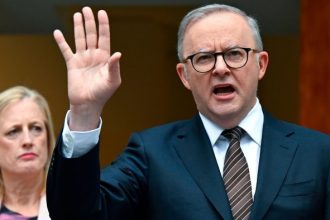SAO PAULO (Reuters) -Brazil’s inflation came in well below market expectations in its mid-January reading, statistics agency IBGE said on Friday, providing central bank policymakers with good news as they gather next week for their first interest rate decision of 2024.
Consumer prices in Latin America’s largest economy rose 0.31% in the month to mid-January, IBGE said, down from 0.40% in the previous month and below all estimates in a Reuters poll of economists, whose median forecast was for a 0.47% increase.
Annual inflation reached 4.47%, sliding from 4.72% in the previous reading and also below the 4.63% expected by market participants.
The fresh figures come as Brazil’s central bank is expected to lower its benchmark interest rate by 50 basis points for the fifth time in a row to 11.25% when its board meets on Jan. 30 to 31, although some do not see larger cuts as out of the question.
“We expect a 50-basis-point rate cut next week, but can’t rule out bolder action as higher real rates are a threat to the (economic) recovery,” Pantheon Macroeconomics’ chief Latin America economist Andres Abadia said.
Inflation in January was driven by higher food and beverage costs, IBGE said in a report, but a drop in transportation prices partially offset those increases.
The statistics agency highlighted that airfares, which the government last month dubbed its biggest concern regarding inflation after a major jump in prices recently, finally decreased.
President Luiz Inacio Lula da Silva is on a personal campaign to make air travel more affordable, with his government set to launch a fund to help finance airline operations and looking at ways to reduce jet fuel prices.
But as the inflation decline in early January was driven by a particularly volatile item such as airfares, Capital Economics’ chief emerging markets economist William Jackson said he doubts policymakers will open the door to larger rate cuts.
“Another 50-basis-point cut in the Selic rate at next week’s meeting is nailed on,” Jackson said. “And we suspect that the policymakers will retain their guidance for 50-basis-point cuts at the next few meetings too.”
Read the full article here





